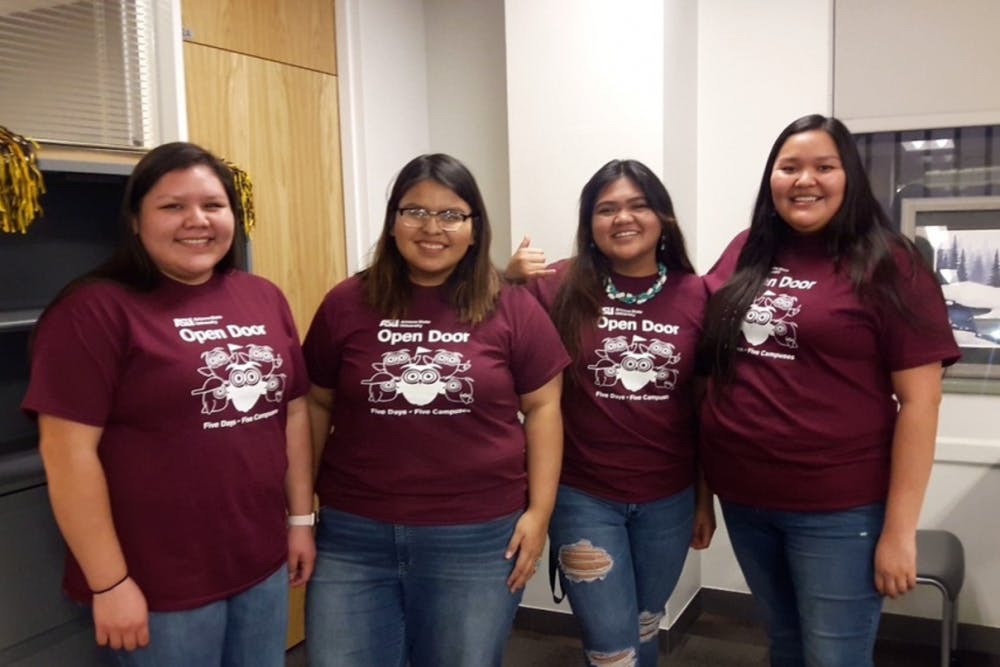Last month in downtown Phoenix, activists took to the streets for the 2018 Women's March — but just two hours before, a group gathered for a more specific cause: to honor indigenous women and to seek answers about a slew of murders, rapes and disappearances in their communities.
According to statistics on violence against native women released by the National Congress of American Indians, on some reservations, Native women are murdered at more than ten times the national average. 34 percent of native women will be raped in their lifetimes, according to the same statistics.
And in 2013, according to the Justice Department, there were 320 cases of rape known to tribal law enforcement on the Navajo Nation, which contains large swaths of territory in northern Arizona.
There is little data on missing native women, and those searching for them often have little recourse of action. The disappearance of Ariel Begay, a Navajo woman in her 20s who was last seen in July of 2017, made headlines and brought the issue to the public consciousness
“This issue hits close to home for me,” said Vicki Baldwin, a student success and retention coordinator for ASU's American Indian Student Support Services on the downtown Phoenix campus. “I am Diné from the Navajo Nation and a majority of my students involved in our programs are Navajo as well….it frightens me, especially for our female students being downtown. I have told them when they go out, make sure they’re going with someone — you never know what to expect.”
Baldwin’s main mission with American Indian Student Support Services is to use education to help empower Native students and ensure their success through providing them with a variety or academic and social support systems.
“I do a lot of one-on-one support with students," Baldwin said. "Sometimes, I’ll just listen and they will share with me their stories."
Kelli Brown, a community health freshman who has received assistance from AISSS, is concerned about the issue of the unsolved disappearances and hopes to be move involved moving forward.
“I think it’s really important to keep talking about these issues because if we don’t, these awful things will continue to happen,” Brown said. “AISSS has given me a place I feel safe on campus and ... my friends are here so it’s a really great place to be.”
Native students make up 1.3 percent of ASU’s undergraduate class as of fall 2016. With such a small population, advocates may find it difficult to raise awareness about Native issues. This is what the Native student-run magazine Turning Points aims to do.
“All of what we’re writing and reporting on are topics that deeply impact native students and communities,” said Taylor Notah, a journalism senior and an editor at the magazine. “The topic of missing Native women is a hard topic to begin to learn about. We have high rates of sexual violence and abuse in our communities — this happens in my community of the Navajo Nation and all over Indian Country. It’s a pain that’s unbearable.”
Notah says her time here at ASU and the services she has can access have given her the platform and the education to be a voice for her community.
“Natives have a world view that we're all related and we're all connected. When an indigenous woman is murdered, it could be our mother or our sister or someone that we know and we all feel that pain.”
Reach the reporter at trivera3@asu.edu or follow @RiveraTaylor21 on Twitter.
Like The State Press on Facebook and follow @statepress on Twitter.





